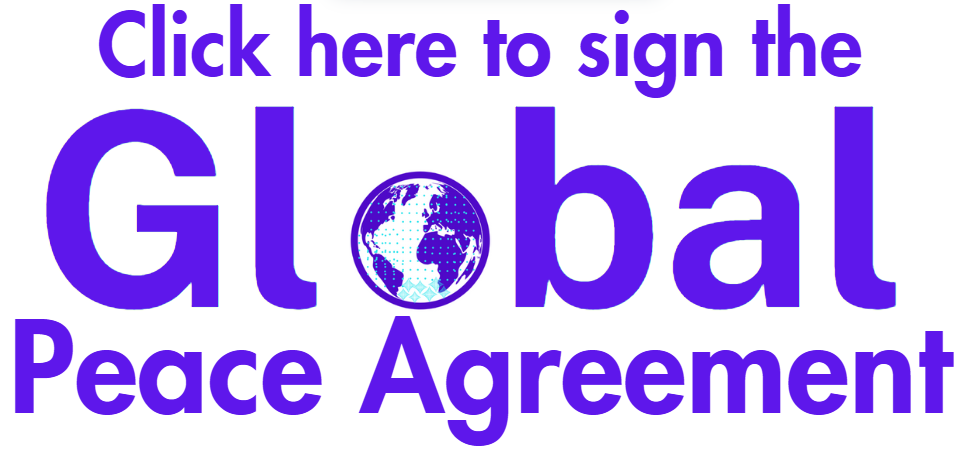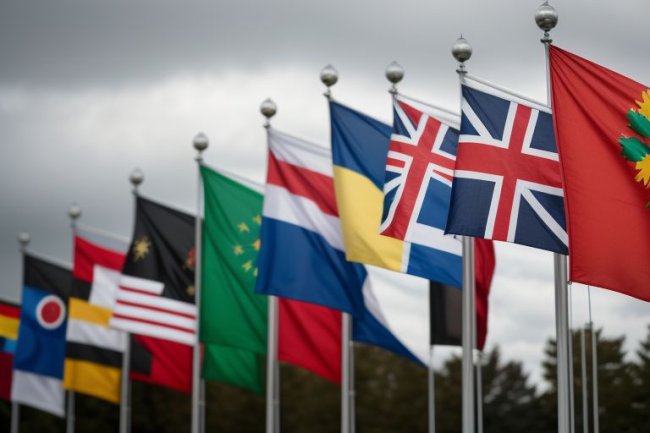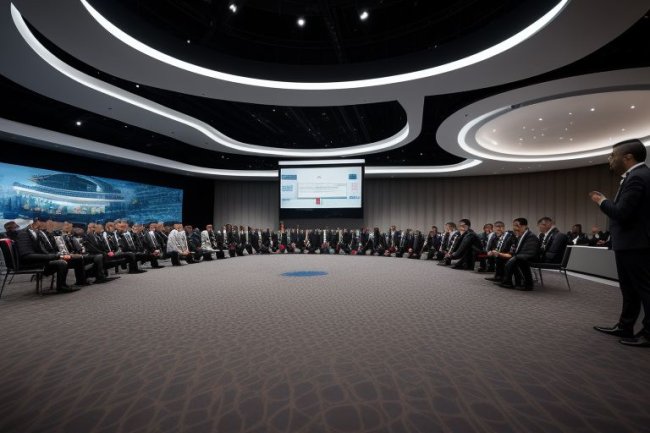This narrative is not of despair but hope, which envisions a metamorphosis as profound as the seasons' changing dance. The current landscape, painted with hues of discord, holds within its every brushstroke the potential for a masterpiece that celebrates human potential and endeavor. As the pendulum of time swings, it carries with it whispers of transformation—whispers that entice the collective imagination to weave a tapestry of change, vibrant and inclusive.
The urgency of this epoch is a palpable heartbeat, quickening as societies unite in the understanding that progress cannot be measured solely in monetary terms. It is an understanding that heralds a new dawn, where economic reformation becomes the compass guiding us toward a future characterized not by divisions but by bridges spanning across continents and cultures.
We stand on the precipice of possibility with a compass and a shared purpose igniting our spirits. As we step forward, let us embrace the challenge of shaping an equitable and harmonious tomorrow, where the cadence of global economic reform harmonizes with the symphony of human potential, creating a melody that resonates for generations to come.
Unveiling the Imperative for Reform
Modern global economic architecture stands at a crossroads where the chasm between affluence and deprivation looms larger than ever before. The repercussions of these disparities are far-reaching, reverberating across continents and manifesting in myriad forms – social unrest, political instability, and ecological imbalances. The imperative for global economic reform emerges as a beacon of hope, illuminating the path toward a more just, sustainable, and cohesive world.
The Complex Web of Economic Disparities
A panoramic view of the global economic panorama reveals a complex web of disparities that extend beyond mere financial inequalities. Geographical regions, socio-economic strata, and gender divisions intertwine to create a multidimensional tapestry of disadvantage. Wealth and resources, rather than equitably shared, often concentrate within a narrow subset of nations and individuals, accentuating the divide between the privileged and the marginalized.
Crafting a Blueprint for Unity
1. Redefining Growth and Success
The cornerstone of global economic reform lies in reimagining growth and success. Moving beyond traditional measures such as Gross Domestic Product (GDP), a reformed economic framework should encompass well-being indicators, social progress, and environmental sustainability. This shift in perspective would recalibrate the pursuit of growth towards a more holistic and inclusive understanding of prosperity.
2. Inclusive and Equitable Policies
A blueprint for unity necessitates designing and implementing inclusive and equitable policies that address the root causes of disparities. Social safety nets, quality education, accessible healthcare, and sustainable livelihoods must be prioritized to create a level playing field for all individuals, irrespective of their socio-economic background.
3. Ethical and Responsible Business Practices
The private sector wields considerable influence over global economic dynamics. As such, a reformed economic landscape demands ethical and responsible business practices prioritizing social and environmental well-being alongside financial gains. Corporate social responsibility and sustainability initiatives must be integral to this blueprint for unity.
4. Global Trade and Cooperation
Reform on a global scale requires reimagining the dynamics of trade and cooperation. Establishing fair trade practices, minimizing trade obstacles, and fostering cooperative endeavors to tackle global issues like climate change and public health emergencies ought to serve as the foundational principles of a revamped economic framework. Multilateral institutions play a crucial role in facilitating such cooperation.
5. Empowerment of Marginalized Communities
The blueprint for unity must empower marginalized communities within and between nations. Empowerment entails fostering entrepreneurship, promoting access to credit, and creating avenues for skill development. It is paramount to elevate the voices of underrepresented groups and integrate their perspectives into economic decision-making processes.
Overcoming Challenges on the Road to Reform
The journey towards global economic reform is fraught with challenges, requiring a steadfast commitment to navigate the intricacies:
1. Political Will and Leadership
Reform demands strong political will and visionary leadership that transcends short-term interests. Interweaving domestic and international political forces can intricately complicate the execution of transformative actions. Global leaders must rise above geopolitical rivalries and champion the cause of unity to pave the way for reform.
2. Resistance to Change
The inertia of established economic structures and vested interests can pose significant roadblocks to reform. Powerful stakeholders may resist relinquishing their advantages, fearing potential disruptions to their status quo. Convincing these stakeholders of the long-term benefits of reform is a formidable challenge that requires persuasive advocacy and robust evidence.
3. Coordination and Implementation
Crafting a blueprint for unity is a nuanced endeavor that necessitates harmonizing diverse policies and perspectives. Achieving consensus among nations with varying economic, cultural, and political contexts demands adept diplomacy and effective coordination. Implementing reforms consistently and fairly across borders further adds to the complexity.
Visionary Pathways and Catalysts for Change
1. United Nations Sustainable Development Goals (SDGs)
The SDGs are a comprehensive framework for global economic reform, encompassing poverty eradication, environmental sustainability, gender equality, and more. These goals serve as a common compass, guiding nations toward a shared vision of unity and equity. Progress towards the SDGs relies on collaboration, innovation, and a collective commitment to transformative change.
2. Climate Action as a Driver of Reform
The pressing necessity to combat climate change offers a persuasive drive for worldwide economic restructuring. Shifting towards sustainable energy sources, embracing circular economies, and curbing environmental deterioration necessitate comprehensive transformations that resonate with the values of unity and fairness. Green economic policies can stimulate growth while safeguarding the planet for future generations.
3. Innovative Financing Mechanisms
Innovative financing mechanisms, such as global taxes on wealth or carbon emissions, can catalyze redistributive policies and equitable development. These mechanisms have the potential to generate resources that can be channeled towards uplifting marginalized communities, funding social programs, and advancing sustainable development projects.
The call for global economic reform reverberates as a clarion call, summoning nations, institutions, and individuals to embark on a transformative journey from disparities to unity. This journey is not one of convenience but necessity, driven by the imperatives of justice, sustainability, and shared prosperity. The blueprint for unity, rooted in redefined notions of growth, inclusive policies, responsible business practices, global cooperation, and the empowerment of the marginalized, offers a roadmap toward a more equitable and harmonious world. As challenges are confronted, and visionary pathways are traversed, the realization of this blueprint holds the promise of an economic landscape where disparities are bridged, unity prevails, and the symphony of human progress reaches its crescendo.
In today's global economy, the role of international institutions in shaping equitable economic policies has become increasingly pivotal. These establishments, spanning from the International Monetary Fund (IMF) and World Bank to regional entities such as European Union (EU) and African Union (AU), assume a critical function in advancing economic steadiness, nurturing collaboration, and guaranteeing balanced progress among nations.
The European Union has been a pioneer in promoting social cohesion through its regional policies. The EU's Structural and Investment Funds support less-developed regions financially, fostering infrastructure development, education, and job creation. The EU contributes to more equitable economic growth within the bloc by narrowing development gaps between member states.
The IMF's PRGF program also aims to assist low-income countries in designing and implementing poverty reduction strategies. The program encourages countries to prioritize pro-poor policies through financial support and policy advice, such as investing in healthcare, education, and social safety nets.
The Significance of Equitable Economic Policies
At the heart of the global economic narrative, equitable economic policies are a lighthouse guiding nations through the tumultuous waters of development. Based on the principles of equity and impartiality, these policies act as a pivotal point around which societies harmonize their ambitions for progress while upholding the necessities of communal welfare.
The significance of equitable economic policies transcends mere rhetoric; it encapsulates a profound understanding of the intricate web of interdependencies that constitute modern economies. In a world where economic inequalities can breed social unrest and hinder progress, these policies emerge as a necessary bridge between the haves and the have-nots, forging a path toward inclusive prosperity.
Imagine a society where the benefits of economic growth cascade down every rung of the social ladder, nourishing each individual's potential and kindling the flames of hope. Equitable economic policies promise to level the playing field, breaking down barriers that inhibit marginalized communities from participating in and contributing to the economic discourse. This inclusive approach does more than just lift individuals out of poverty; it cultivates a sense of ownership, fostering a collective sense of purpose and shared destiny.
These policies serve as a potent elixir for social cohesion in a world marked by the chasm between affluence and destitution. Equitable economic policies become the glue that binds communities together by ensuring that the fruits of economic progress are not confined to a privileged few but rather are distributed among diverse segments of society. They diminish the fault lines that often give rise to social strife, forging connections across different backgrounds and beliefs.
Moreover, equitable economic policies are not mere luxuries but imperatives for long-term stability and sustainable growth. As economies expand and evolve, the absence of mechanisms to ensure the equitable distribution of benefits can lead to imbalances undermining development foundations. A lopsided distribution of wealth can amplify social tensions and erode trust in institutions, casting shadows of uncertainty over the trajectory of progress.
While the vision of equitable economic policies is compelling, their realization is a complex symphony that requires meticulous orchestration. The threads of policy formulation must be woven with a keen understanding of the intricate economic dynamics at play, avoiding unintended consequences that could stifle growth or exacerbate disparities. At the national level, governments must navigate a delicate dance between stimulating economic activity and safeguarding the interests of vulnerable populations.
However, the canvas of equitable economic policies extends beyond national borders. In our interconnected world, disparities within one nation can reverberate across the global stage, affecting trade, investment, and geopolitical stability. International coordination, facilitated by institutions, becomes crucial to harmonize efforts and prevent a race to the bottom where countries vie for economic advantages at the expense of equity.
The Role of International Institutions
1. Knowledge Dissemination and Capacity Building
International institutions act as repositories of economic knowledge and best practices. They provide valuable research, data, and policy recommendations to member countries, enabling them to make informed decisions. The IMF, for instance, publishes the World Economic Outlook and Fiscal Monitor reports, offering insights into global economic trends and fiscal policies. These institutions empower countries to design and implement more equitable economic policies by disseminating knowledge and facilitating capacity building.
2. Policy Coordination and Harmonization
Equitable economic policies often require coordination and harmonization among countries to prevent the "race to the bottom" phenomenon, where nations compete by adopting lax regulations or unfair tax practices. International institutions provide a platform for dialogue and cooperation, helping countries align their policies to ensure fairness and prevent negative externalities. The Organization for Economic Cooperation and Development (OECD) is crucial in establishing global benchmarks for tax transparency and anti-corruption strategies, fostering an equitable platform for businesses, and mitigating disparities stemming from disparate regulatory landscapes.
3. Financial Assistance and Technical Support
Due to limited resources and expertise, many developing countries need help formulating and implementing equitable economic policies. International institutions offer financial and technical support to help these countries design and execute effective policies. The World Bank funds projects promoting inclusive growth, such as education and healthcare initiatives, infrastructure development, and poverty reduction programs. These institutions contribute to reducing disparities and advancing economic equity through targeted assistance.
4. Crisis Management and Stability
During times of economic crisis, international institutions play a crucial role in stabilizing economies and preventing social upheaval.
For instance, the IMF provides financial aid packages to nations with currency or balance of payments issues. These packages often come with conditions that require recipient countries to implement structural reforms to enhance equity, such as reducing subsidies for the affluent and redirecting resources toward social programs. By addressing economic vulnerabilities, international institutions maintain stability and promote fair economic outcomes.
Mechanisms of Influence
The influence of international institutions on shaping equitable economic policies is realized through a variety of mechanisms:
1. Conditionality
Financial assistance provided by international institutions often comes with conditions that recipient countries must meet to access funding. These conditions may include implementing policy reforms to promote equity, such as improving social safety nets or increasing access to education and healthcare. Conditionality ensures that countries adopt measures that contribute to more equitable economic outcomes.
2. Policy Advice and Technical Expertise
International institutions offer policy advice and technical expertise to member countries. This guidance is based on rigorous analysis and research, helping countries design policies tailored to their unique economic circumstances. By leveraging the expertise of these institutions, countries can formulate more effective strategies for reducing inequality and promoting equitable growth.
3. Monitoring and Accountability
International institutions monitor the implementation of economic policies and assess their impact on equity and development. Regular assessments provide a basis for feedback and accountability, enabling countries to adjust their policies if necessary. For instance, the United Nations Development Programme (UNDP) publishes the Human Development Index (HDI), which ranks countries based on income, education, and life expectancy. This index holds countries accountable for their progress in achieving equitable human development.
Challenges and Criticisms
While international institutions play a vital role in shaping equitable economic policies, they are not without challenges and criticisms:
• Democratic Deficit
Critics argue that some international institutions lack democratic legitimacy, as a small group often makes decisions of powerful countries. This can lead to policies prioritizing these countries' interests over the needs of smaller or less influential nations, potentially exacerbating inequality.
• Policy Imposition
International institutions' imposition of policy conditions can sometimes be seen as intrusive and insensitive to local contexts. Policymakers may perceive these conditions as undermining their sovereignty and ability to tailor policies to their specific economic and social conditions.
• Inadequate Representation
The representation of developing nations in international organizations is frequently restricted, resulting in imbalanced priorities and policies that inadequately tackle the distinctive difficulties confronted by these countries. This lack of representation can hinder efforts to promote equitable economic policies.
In the complex landscape of global economics, international institutions play a critical role in shaping equitable economic policies. Through knowledge dissemination, policy coordination, financial assistance, and crisis management, these institutions reduce inequality and promote sustainable development. While challenges and criticisms exist, the mechanisms and examples highlighted in this exploration demonstrate the potential of international institutions to drive positive change and create a more just and equitable world economy. As countries continue to grapple with the intricacies of economic policy, the role of these institutions remains indispensable in forging a path toward shared prosperity.





















